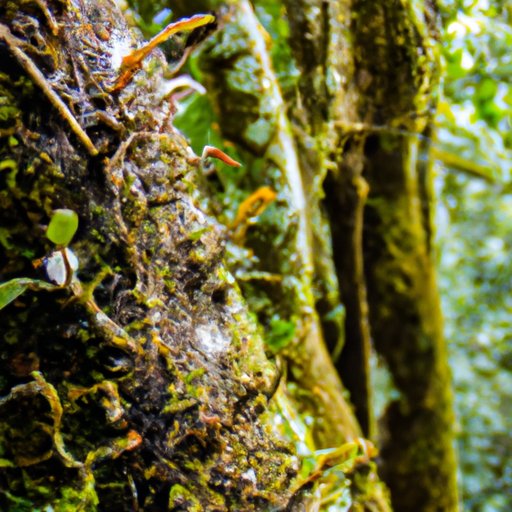Introduction
Ecology is the scientific study of the interactions between organisms and their environment. It encompasses the complex relationships between plants, animals, and other living organisms, as well as the physical and chemical factors in the environment that affect them. Ecology is an interdisciplinary field that combines elements of biology, chemistry, physics, geology, and other sciences to understand how organisms and their environment interact.
The impact of ecology on our world is immense. By studying the environment and its inhabitants, we can better understand the causes and consequences of global environmental issues. We can also learn how to protect and preserve the Earth’s ecosystems for future generations.

Overview of Different Branches of Ecology
Ecology is divided into four main branches: population ecology, community ecology, ecosystem ecology, and evolutionary ecology. Each branch focuses on different aspects of the environment and its inhabitants.
Population Ecology
Population ecology studies the dynamics of populations of organisms, such as their size, composition, and distribution. It examines how populations are affected by various factors, including predation, competition, disease, and human activities.
Community Ecology
Community ecology studies the interactions between different species in a particular area. It focuses on how species interact with each other, such as through competition and predation, and how these interactions influence the structure of the community.
Ecosystem Ecology
Ecosystem ecology studies the complex interactions between biotic (living) and abiotic (non-living) factors in an ecosystem. It focuses on understanding how energy and materials move through an ecosystem and how they affect its structure and function.
Evolutionary Ecology
Evolutionary ecology studies how populations of organisms evolve over time in response to environmental changes. It examines how natural selection shapes the genetic makeup of a population and how this affects the behavior and ecology of the species.

Interconnectedness of Species and its Impact on the Environment
Organisms in an ecosystem are interconnected in a variety of ways. These connections can have both positive and negative impacts on the environment.
Symbiotic Relationships
Symbiosis is a relationship between two species in which both parties benefit. Examples of symbiotic relationships include mutualism (both species benefit), commensalism (one species benefits while the other is unaffected), and parasitism (one species benefits while the other is harmed). Symbiosis can play an important role in maintaining the balance of an ecosystem.
Food Webs
Food webs are diagrams that show the flow of energy and materials between different species in an ecosystem. They illustrate the interconnectedness of species and how changes in one species can have cascading effects throughout the entire ecosystem.
Impacts of Human Activity
Human activity has had a profound impact on the environment and its inhabitants. Activities such as pollution, habitat destruction, and overfishing have disrupted the balance of ecosystems around the world. As a result, many species have been pushed to the brink of extinction.
Climate Change and its Effects on Ecology
Climate change is one of the most pressing issues facing our planet today. The increasing concentration of greenhouse gases in the atmosphere is causing global temperatures to rise, leading to changes in weather patterns and other environmental changes.
Increased Global Temperatures
According to a 2018 report from the Intergovernmental Panel on Climate Change (IPCC), global temperatures have risen 1.1°C since preindustrial times. This increase in temperature has resulted in more extreme weather events, such as heat waves and floods, as well as changes in precipitation patterns.
Changes in Weather Patterns
Rising temperatures have also caused changes in weather patterns, resulting in longer and more intense droughts, heavier rainfall, and stronger storms. These changes have had a significant impact on ecosystems around the world, resulting in shifts in species distributions and altered food webs.
Benefits of Conservation Efforts
Conservation efforts are essential for preserving species and maintaining healthy ecosystems. Protected areas, such as national parks and wildlife refuges, provide habitats for species and help to reduce the impacts of human activities on the environment. Sustainable development initiatives, such as ecotourism, can also help to promote conservation while providing economic benefits to local communities.

Solutions to Address Global Issues Related to Ecology
In order to address global issues related to ecology, it is important to focus on sustainable development and international cooperation. Sustainable development initiatives, such as renewable energy sources and improved agricultural practices, can help to reduce the impacts of human activities on the environment. Additionally, international cooperation can help to ensure that all countries are working together to protect the environment and its inhabitants.
Conclusion
The science of ecology is a complex but fascinating field that helps us to understand the intricate web of life on our planet. By studying the environment and its inhabitants, we can gain insight into the causes and consequences of global environmental issues and learn how to protect and preserve the Earth’s ecosystems for future generations. Through sustainable development and international cooperation, we can work together to create a more sustainable future for our planet.
(Note: Is this article not meeting your expectations? Do you have knowledge or insights to share? Unlock new opportunities and expand your reach by joining our authors team. Click Registration to join us and share your expertise with our readers.)
